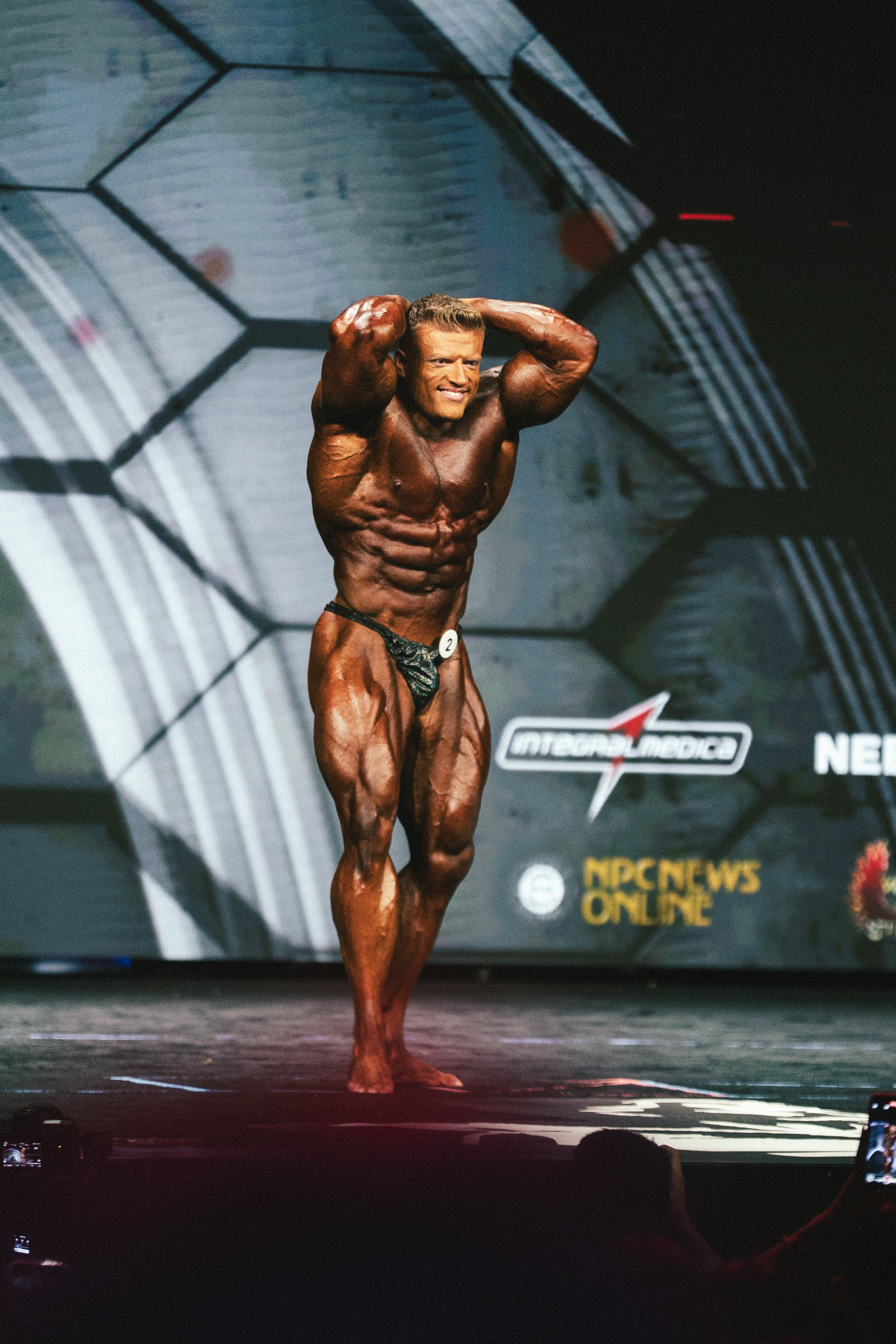Tags: Nutrition, Health, Supplements
Macronutrients are the building blocks of our diet, which are required in large quantities to ensure the body's energy supply and support various physiological functions. They play a key role in nutrition, especially for people who want to improve their fitness or are involved in bodybuilding. Compared to micronutrients, which are required in very small quantities, macronutrients provide the energy the body needs for its daily activities and intense strength training sessions.
In this article, we look at the three main macronutrients – carbohydrates, proteins and fats – and examine their importance for health, fitness and bodybuilding.
1. Carbohydrates: The Primary Energy Source
Carbohydrates are the main source of energy for the body, especially during intense training and physical activity. They are converted into glucose, which serves as fuel for the muscles. Carbohydrates are therefore essential for athletes and bodybuilder pros to ensure the necessary energy for demanding training sessions.
Carbohydrates and Their Role in the Body:
- Energy source: Carbohydrates are the preferred energy source for the body, especially for the brain and muscles during intense physical exertion. Glucose is used directly in the muscles and bloodstream to increase performance.
- Glycogen storage: Excess carbohydrates are stored in the muscles and liver as glycogen. These glycogen stores are particularly important during exercise to ensure a continuous energy supply. A lack of carbohydrates can negatively affect performance.
- Training and regeneration : Carbohydrates help to replenish glycogen stores after training and support rapid regeneration. An optimal carbohydrate intake is essential, especially for bodybuilders who train intensively.
Carbohydrates for fitness and bodybuilding:
- Quantity and timing: Optimal carbohydrate intake varies depending on activity level and goal. For bodybuilders looking to build muscle, higher amounts of carbohydrates before and after exercise may be beneficial to maximize glycogen levels. For less intense activities or people looking to lose weight, moderate carbohydrate intake is useful.
- Complex vs. simple carbohydrates: Complex carbohydrates from whole grains, vegetables and legumes provide long-lasting energy, while simple carbohydrates (e.g. sugar) enter the bloodstream more quickly and provide quick but short-lived energy.
Macronutrients are essential, but micronutrients also play a crucial role in your performance and overall health. Learn more about the importance of vitamins, minerals, and more in this article: Micronutrients – Why They Are Essential for Your Fitness.
2. Proteins: The Building Block for Muscles and Tissue
Proteins are just as important to the body as carbohydrates. They consist of amino acids, which form the building blocks of muscles, enzymes, hormones and many other essential body structures. Proteins are particularly important for fitness and bodybuilding enthusiasts to promote muscle growth and support recovery after training. Proteins are particularly important for bodybuilding , strength training and competition preparation.
Proteins and Their Importance:
- Muscle building: During intensive training, micro-injuries occur in the muscle fibers, which must be repaired in order to build muscle. Proteins provide the necessary amino acids for this repair process. Proteins are particularly important after training to optimize muscle building.
- Prevent muscle loss: Adequate protein consumption not only helps build muscle, but also prevents muscle loss (catabolism). This is especially important during intensive dieting or training phases, when the body may tend to lose more muscle.
- Satiety and energy: Proteins promote satiety and help control appetite, which is particularly beneficial during dieting or fat loss. At the same time, they provide continuous energy by converting to glucose, albeit more slowly than carbohydrates.
Proteins for Fitness and Bodybuilding:
- Amount and timing: A general recommendation for bodybuilders is around 2 to 3g of protein per kilogram of body weight, depending on training intensity and goals. It is important to distribute proteins evenly throughout the day and to eat a protein-rich meal, especially after training, to optimally supply the muscles.
- Protein sources: Good protein sources include lean meat, fish, eggs, dairy products, plant-based protein sources such as legumes and tofu, and protein-rich foods such as cottage cheese and Greek yogurt. For vegetarians or vegans, there are a variety of plant-based protein sources such as pea protein, rice protein, and soy protein.
3. Fats: The Essential Energy Sources
Fats are the second most common source of energy for the body and play a central role in maintaining numerous bodily processes. They are particularly important for hormone production, cell structure and the absorption of fat-soluble vitamins (A, D, E and K).
Fats and Their Role:
- Hormonal health: Fats are essential for the production of hormones, including testosterone and growth hormones, which are crucial for muscle building and recovery. Fats play a key role, especially for bodybuilders who rely on muscle growth.
- Slow energy source: While fats are converted into energy less quickly than carbohydrates, they provide a long-lasting source of energy. Fats are particularly important for maintaining performance over a longer period of time during long training sessions or endurance sports.
- Cell function and recovery: Fats are an integral part of every cell in the body and support cell membrane function. In addition, they have anti-inflammatory properties and can promote recovery after exercise.
Fats for Fitness and Bodybuilding:
- Healthy fats: We differentiate between saturated, monounsaturated and polyunsaturated fats. Monounsaturated fats (e.g. from avocados, olive oil and nuts) and polyunsaturated fats (e.g. omega-3 fatty acids from fatty fish and flaxseed) are particularly healthy and support hormone production and cell health.
- Fat amounts and diet goals: Fat needs depend on personal goals. In a low-fat diet, fat is reduced but not completely eliminated. For bodybuilders and people who train intensively, a moderate amount of healthy fats is useful in order to optimize hormonal balance and energy levels.
Conclusion: The Right Balance for Optimal Results
The right balance of carbohydrates, proteins and fats is key to optimal health, performance and bodybuilding results. Carbohydrates provide the energy needed for intense training, proteins build and repair muscle, and fats support hormonal balance and long-term energy. By understanding the functions and importance of these macronutrients, you can tailor your diet to effectively achieve your fitness goals, whether you're looking to build muscle, lose fat or just stay healthy.
Individual adjustments to macronutrient distribution depending on your specific goals (e.g. muscle building, fat loss, or endurance performance) are crucial to getting the most out of your training and nutrition.


